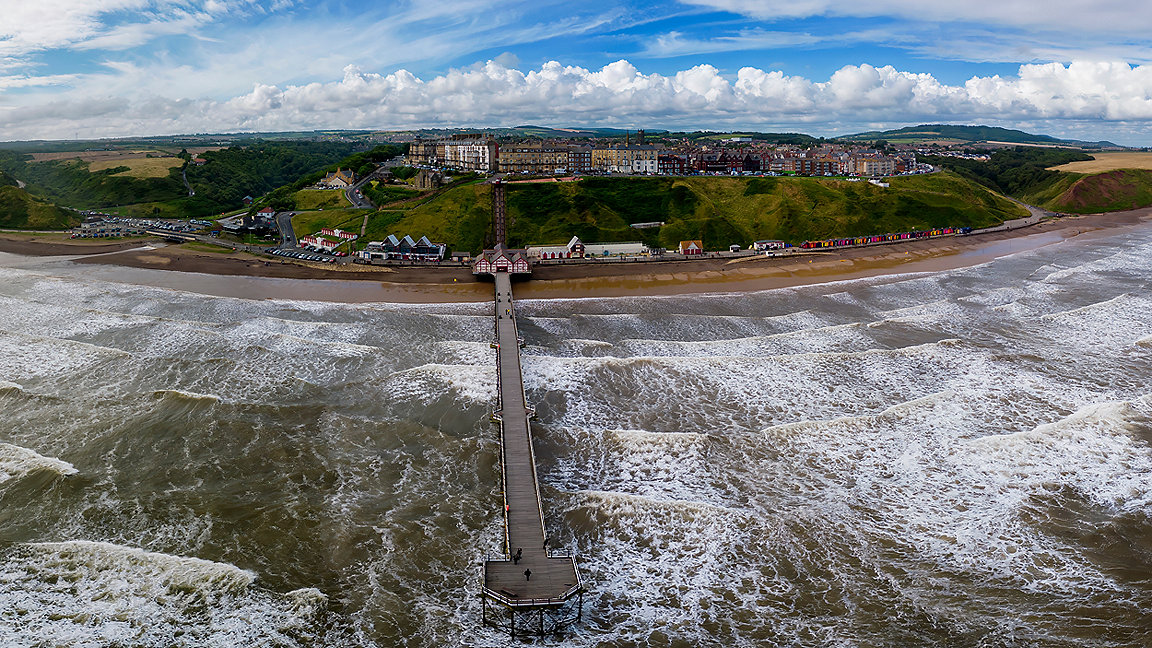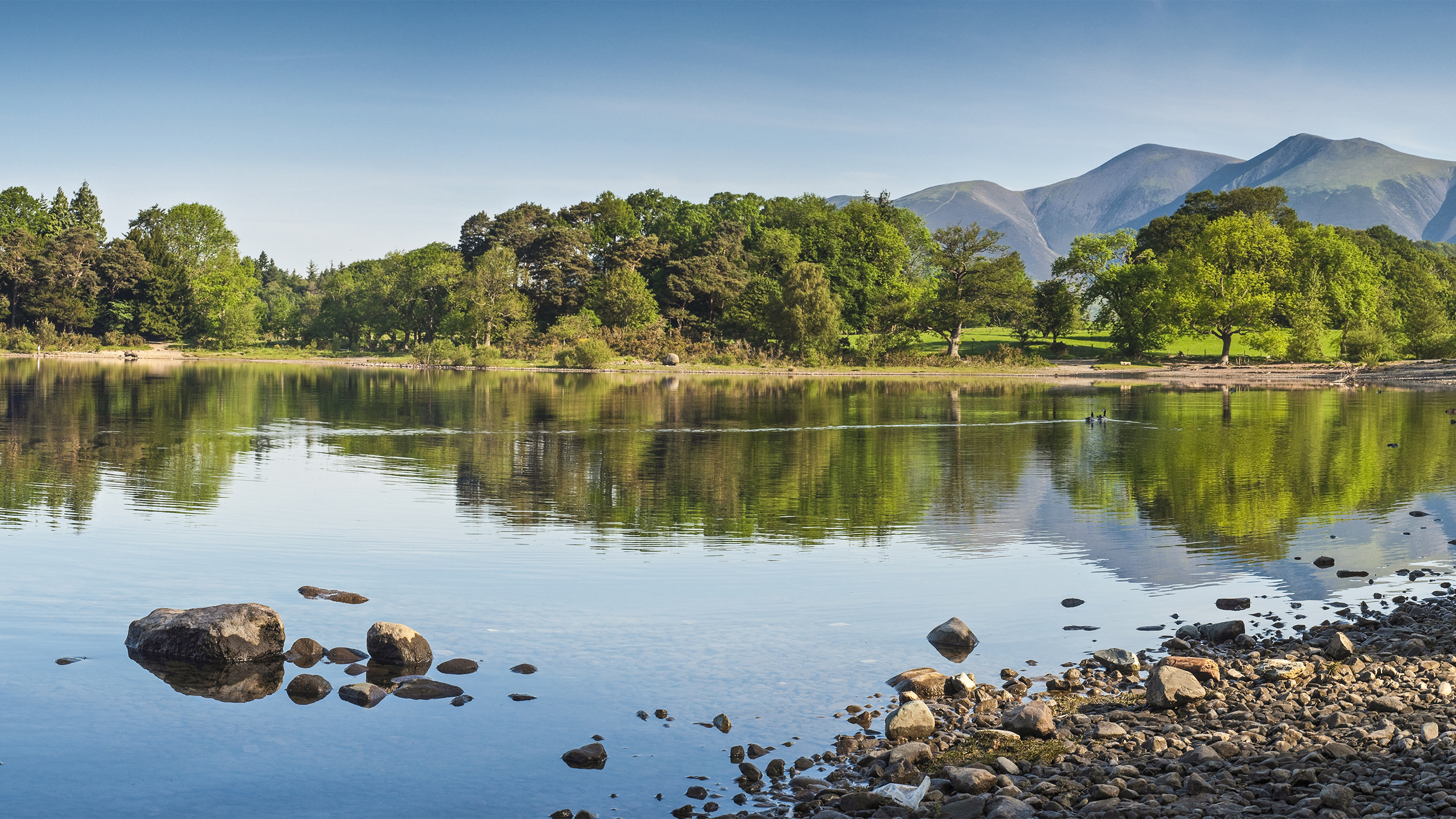
Five years ago, the UK Department for Environment, Food & Rural Affairs (DEFRA) set out its vision for a quarter of a century of action to help the natural world regain and retain good health in the 25-year environment plan. It committed to revising the plan every five years, and has done so for the first time in the Environmental Improvement Plan (EIP) 2023.
The goals set out in the 25-year plan for England form the basis of those in the new EIP, which are as follows:
- 'thriving plants and wildlife
- clean air
- clean and plentiful water
- managing exposure to chemicals and pesticides
- maximise our resources, minimise our waste
- using resources from nature sustainably
- mitigating and adapting to climate change
- reduced risk of harm from environmental hazards
- enhancing biosecurity
- enhancing beauty, heritage and engagement with the natural environment.'
The overall objective is to improve nature, with all goals aiming to achieve this.
Restoring habitats to support wildlife
DEFRA has committed to halting the decline in biodiversity and has already created or restored wildlife habitats amounting to an area the size of Dorset. Separately it is investing more than £750m in tree-planting and peatland restoration through the Nature for Climate Fund.
It has also established a network of marine protected areas across 91,000km2 of English waters and agreed a new Global Biodiversity Framework, with 23 global targets, including 30% of global land and 30% of global oceans to be protected by 2030.
The latter target is particularly pertinent, with the oceans recently having reached their hottest ever recorded temperature – with dire implications for our planet's health. All goals and targets set in the Global Biodiversity Framework will support progress towards the UN's Sustainable Development Goals.
To fulfil goal 1 of the EIP, DEFRA has committed to:
- 'Launch the Species Survival Fund to create, enhance and restore habitats.
- Create, restore, and extend around 70 areas for wildlife through projects including new National Nature Reserves, and the next rounds of the Landscape Recovery Projects.
- Protect 30% of our land and sea for nature through the Nature Recovery Network and enhanced protections for our marine protected areas. We intend to designate the first Highly Protected Marine Areas this year.
- Implement the Environment Act 2021, including rolling out Local Nature Recovery Strategies to identify areas to create and restore habitat, and Biodiversity Net Gain to enhance the built environment.
- Support a transformation in the management of 70% of our countryside by incentivising farmers to adopt nature friendly farming practices.
- Publish an updated Green Finance Strategy, setting out the steps we are putting in place to leverage in private finance to deliver against these goals. We have a goal to raise at least£500m per year of private finance into nature's recovery by 2027 and more than £1bn by 2030.'
Ensuring a cleaner, less polluted environment
DEFRA recognises that to restore nature it will need to improve the quality of the environment. Goals 2–4 in the EIP are critical for this.
Goal 2 aims to achieve clean air. While air quality in the UK has improved significantly in recent decades, it nevertheless continues to be the biggest environmental risk to human health and a source of harm to the natural environment.
To resolve this, DEFRA has committed to:
- 'cut overall air pollution by tackling the key sources of emissions, including reducing the maximum limits for domestic burning appliances in smoke control areas
- tackle specific hotspots by challenging councils to improve air quality more quickly, while supporting them with clear guidance, funding, and tools
- reduce ammonia emissions (crucial for sensitive natural habitats) by using incentives in our new farming schemes, investing £13 million in slurry storage infrastructure in 2023 and considering expanding environmental permitting conditions to dairy and intensive beef farms.
'A healthy environment also relies on clean and plentiful water, and in goal 3 DEFRA recognises that the public expects better clean drinking water, water use for crops and bathing waters.'
The department has therefore committed to:
- 'tackle nutrient pollution, including by upgrading 160 wastewater treatment works by 2027 and providing increased advice and incentives to support a shift to sustainable agricultural techniques
- restore 400 miles of river through the first round of Landscape Recovery projects and establish 3,000 hectares of new woodlands along England's rivers
- roll out water efficiency labelling across appliances and ensure water companies deliver a 50% reduction in leakages by 2050'.
DEFRA also says it needs to continue managing exposure of the natural world to chemicals and pesticides, recognising that although such substances are an important part of a productive economy and sustainable food production they can place significant pressures on land and sea. Brexit has provided an opportunity to review this approach.
To meet goal 4, therefore, DEFRA has committed to:
- 'develop a new chemicals strategy this year to establish our regulatory approach and priorities for the sustainable use of chemicals through UK registration, evaluation, authorisation and restriction of chemicals (REACH)
- help farmers transition to integrated pest management with investment and advice, utilising nature to tackle pests and reducing reliance on manufactured pesticides'.
Making best use of natural resources
The way we use finite and precious natural resources must be improved, and DEFRA has acknowledged this in goals 5 and 6 of the EIP, the former also requiring waste to be minimised.
Unfortunately the pandemic set back England's progress on this with a reduction in household recycling levels. DEFRA recognises the need to return to better habits to achieve a circular, sustainable economy.
In this regard DEFRA will:
- 'work with business to implement packaging extended producer responsibility from 2024 so that polluters pay to recycle packaging
- introduce a deposit return scheme for plastic and metal drinks containers from October 2025 to drive higher recycling rates
- implement consistent recycling between different councils, to boost recycling rates
- ban the supply of single-use plastics like plastic plates and cutlery from October 2023. We will also explore options further, including with stakeholders, for the potential for technological innovation in the production of coffee cups, and behavioural science in how they are used '.
DEFRA estimates that the UK's natural capital is worth £1.8tr, and draws attention to the essential role of this in meeting our basic needs, maintaining our biodiversity and sustaining our economy.
DEFRA has committed to:
- 'grow a sustainable and long-term UK timber supply by investing in tree planting, skills, innovation and capacity, as well as improving regulatory processes
- publish a baseline map of soil health for England by 2028 and bring at least 40% of England's agricultural soil into sustainable management by 2028
- implement due diligence requirements set out in the Environment Act 2021 to tackle illegal deforestation in our supply chains'.
Tackling climate change and natural hazards
Climate change is a significant pressure on our environment, and with goal 7 DEFRA recognises that leaving it in a better state than we found it requires mitigation and adaptation. We cannot achieve this without nature-based solutions to protect, sustainably manage, and restore natural and modified ecosystems, such as peatland restoration.
DEFRA has said:
- 'Later in 2023 we will update on our progress and plans to reach net zero.
- Publish a land use framework in 2023 to setting out how we will balance multiple demands on our land including climate mitigation and adaptation.
- Invest in farmers and land managers to mitigate flood risk and other climate change-related impacts in our natural environment, through our new farming schemes.
- Continue our role as a global leader in tackling climate change, biodiversity loss and land degradation and push for an integrated approach to international action.'
It has already published the third National Adaptation Programme (NAP3), setting out a five-year strategy to build up the UK's climate resilience.
Climate change is also exacerbating natural hazards and the risk they pose to health, the environment and the economy. Hence, goal 8 aims to reduce the risk of harm from environmental hazards.
On this issue, DEFRA says it will:
- 'Deliver our investment plan to improve coastal and flood defences, including £100 million on the most frequently flooded areas.
- Reward farmers for actions to reduce risks and impacts from floods, droughts, and wildfires through our new future farming schemes'.
Enhancing biosecurity and public engagement
The department recognises that to restore biodiversity the UK needs to enhance biosecurity, as in goal 9. It also acknowledges that the risk of pests, pathogens and invasive, non-native species is increasing, as was seen in winter 2022–23 when the UK experienced its largest outbreak of bird flu.
The department recognises that to restore biodiversity the UK needs to enhance biosecurity, as in goal 9. It also acknowledges that the risk of pests, pathogens and invasive, non-native species is increasing, as was seen in winter 2022–23 when the UK experienced its largest outbreak of bird flu.
To protect our biosecurity against future such threats, DEFRA will:
- 'Deliver the five-year action plan of the 2023 Plant Biosecurity Strategy for GB, mitigating threats such as Xylella and Emerald Ash Borer.
- Seize the opportunity post-Brexit to tailor our border import controls with a new targeted and risk-based Target Operating Model'.
The EIP's final goal is to enhance beauty, heritage and engagement with the natural environment. Spending time in nature is part of what makes the UK such a special place, and the department wants everyone to enjoy landscapes and coastlines – but also recognise that to restore nature we need to do so responsibly.
With this in mind, DEFRA has committed to:
- 'Work across government to fulfil a new and ambitious commitment that everyone should live within 15 minutes walk of a green or blue space.
- Continue our delivery of the England Coast Path and the Coast to Coast National Trail.
- Green the Green Belt as set out in the Levelling Up White Paper by identifying key areas for nature restoration.
- Invest in a new national landscapes partnership for National Parks, Areas of Outstanding Natural Beauty, and National Trails.
- Extend the delivery of our Farming in Protected Landscapes programme, using lessons learned to inform future farming schemes.
- Invest in active travel, with a vision for half of all journeys in towns and cities to be cycled or walked by 2030. £35 million funding has already been committed this financial year'.

